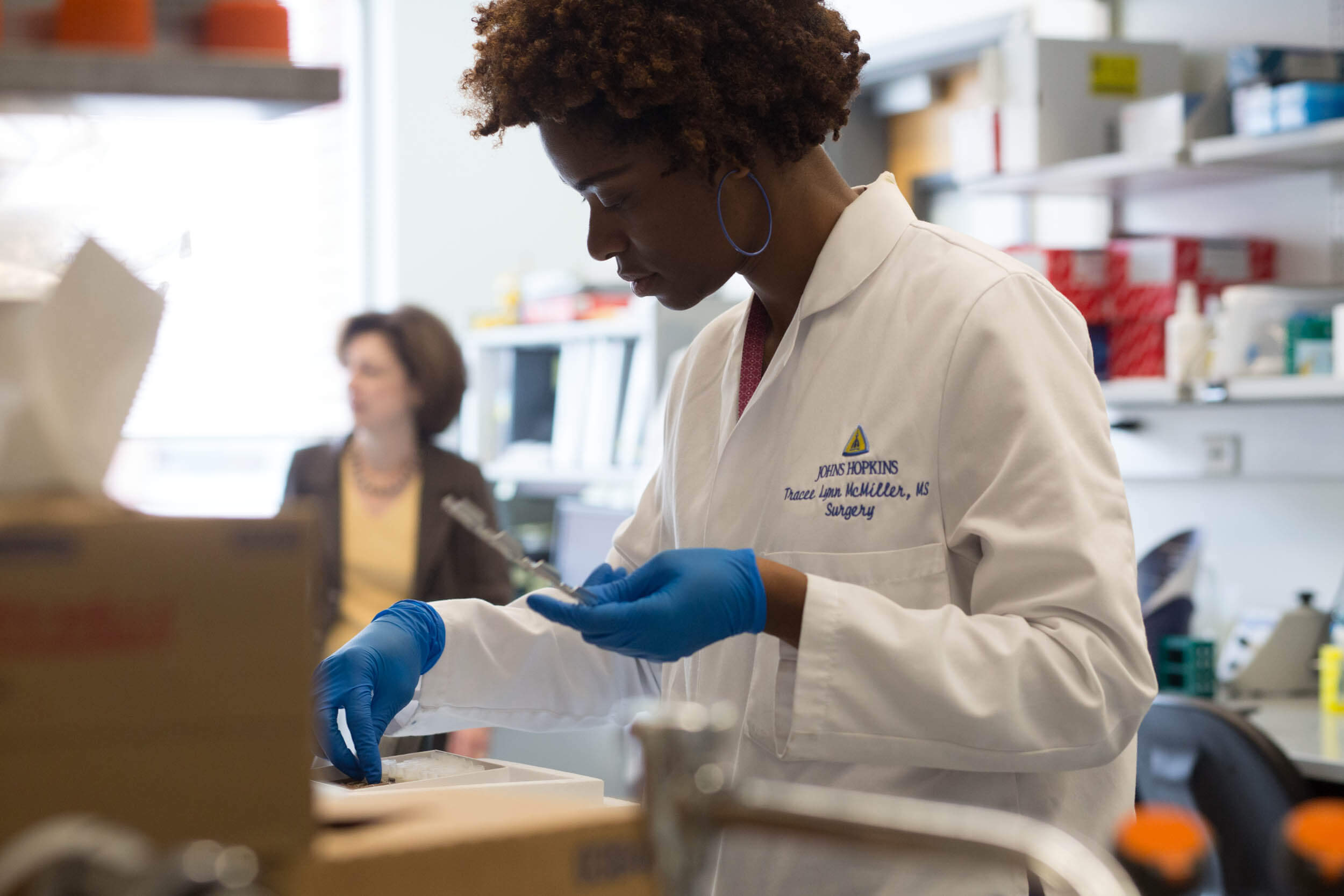What is PRISMM?

Patient Response to Immunotherapy using Spliceosome Mutational Markers (PRISMM) is a novel trial offered through Johns Hopkins, designed for patients with advanced cancers whose tumors have been sequenced and carry a specific rare mutation (SF3B1, U2AF1 or SRSF2).
-
For now, patients with metastatic breast cancer, or other solid tumors (hematologic malignancies and lymphoma excluded) who have undergone sequencing and whose tumors display a rare “spliceosome” mutation (SF3B1, U2AF1 or SRSF2) are eligible for the trial.
-
Spliceosome mutations occur rarely in solid tumors — for example, about 4% of patients with breast cancer may have them. Because of how the spliceosome works, we think tumors carrying a spliceosome mutation may respond to immune therapy (see For Physicians for more detailed information).
It’s hard to study how a rare mutation affects how a tumor responds to medication, because it’s hard to find enough patients to run a clinical trial.
To help us solve this problem, we are searching for these rare patients using online platforms and social media. Once we find them, we will review their records with our experts here at Hopkins and, if appropriate, advise treatment with immune therapy. This in turn may help patients acquire insurance approval for the medicine. Meanwhile, patients’ own doctors will keep us updated on how patients are responding, which helps everyone understand these hard-to-study mutations. -
- Either you or your doctor can submit your information for screening. Join PRISMM, and answer the questions on our secure form, which is your informed consent for the trial. You will need your oncologist’s contact information, and an electronic copy of your molecular diagnostics report (common companies include Foundation Medicine, TEMPUS, and Caris).
- Once we receive your form, our study coordinators will review your submission. If you do not appear to have one of the mutations of interest, we will enter your information into our database. If PRISMM expands to include a mutation that your tumor carries, we may notify you and invite you again to participate.
- If a review of your report reveals that you do indeed have a spliceosome mutation, we will reach out to obtain your consent to enroll you in the trial; at this time we will answer any other questions you have, and ensure that you understand the study and can provide informed consent. We will then contact your local oncologist with information about the trial. If she or he agrees to partner with us, we will obtain further details about your history from him/her, and quickly refer all this information to our Molecular Tumor Board, a panel of genetic oncology experts.
- Meanwhile, we will also request that you provide a blood sample for research analysis. The tumor board will use only your official report for its review, not the results of this blood test, so the blood draw will not delay their recommendations. We may collect blood samples again at around 3 months to perform the same research tests.
- The tumor board will thoroughly review your data, and offer advice about next steps in treatment. In some cases they may recommend immune therapy. In this case, our report can provide supplemental support to request coverage from your insurance company.
- Your oncologist will then keep us updated about your progress via questionnaires and sending us relevant medical records. We will also send you questionnaires to check in with you, but these will be very brief. By enrolling into the PRISMM study, you are contributing generously to medical research, and we thank you!
-
Your personally identifiable data (name, date of birth, etc.) will be secured behind Johns Hopkins’ firewall, in the standard database used by all of Johns Hopkins’ clinical trials.
If you choose “Donate my data”, this permits some additional uses of your information for research. First, it allows us to directly and securely download your sequencing information (not just the report). It also allows your classified information (i.e., with your name and other personal identifiers removed) to be used for research purposes. In this case, you release any claim on the data and any patents, inventions or other financial gain or recognition that may result from studies using this genetic information.
